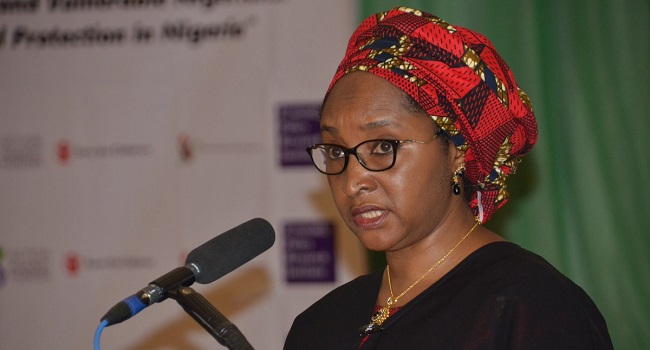Business
Finance minister speaks on what it’ll take for covid-19 to make Nigeria fall into recession

Zainab Ahmed, Minister of Finance, Budget and National Planning Friday said the Nigerian economy might slip into recession in six months, the same day Kristalina Georgieva, the IMF chief announced to the world that the global economy has entered recession.
The IMF’s Managing Director disclosed that already, as many as 80 countries had approached it for emergency aid.
“It is now clear that we have entered a recession – as bad as or worse than in 2009,” Ms Georgieva said.
Ahmed, who appeared on Channels Television Politics Today programme, briefed Nigerians on the efforts taken by government to curtail the sweeping effects of the coronavirus outbreak.
“We are hopeful that this pandemic will be limited in time. If it is an average of three months, we should be able to close the year with positive growth.
“But if it goes longer than that – six months, one year – we will go into recession.”
Read also: NSE: Market bucks Covid-19 to post N54bn gain
Mrs Ahmed, who spoke more than two hours after the IMF boss made her declaration that the world economy was already in a recession, said “globally, with all the impact of the coronavirus, it is clear that global growth is going to decline significantly and in worst case global growth might even go into recession.”
Regarding government’s move to bring its economic strategies up to speed with the current crisis, she said “we made a review of the situation and determined that we need to scale back on our plans to bring our plans to current realities. For example, the crude oil price that we planned in the 2020 budget was at $57 per barrel.
“So we now had to scale back to $30 per barrel and about last week we even found prices going as low as $22 per barrel. So we are still making an assessment to see whether we will stop at 30 or we go to sub 30.”
Nigeria’s oil-reliant economy is propped on petrodollar with 95% of foreign exchange earnings and 80% of government’s budgetary revenue coming from crude export.
Join the conversation
Support Ripples Nigeria, hold up solutions journalism
Balanced, fearless journalism driven by data comes at huge financial costs.
As a media platform, we hold leadership accountable and will not trade the right to press freedom and free speech for a piece of cake.
If you like what we do, and are ready to uphold solutions journalism, kindly donate to the Ripples Nigeria cause.
Your support would help to ensure that citizens and institutions continue to have free access to credible and reliable information for societal development.






















